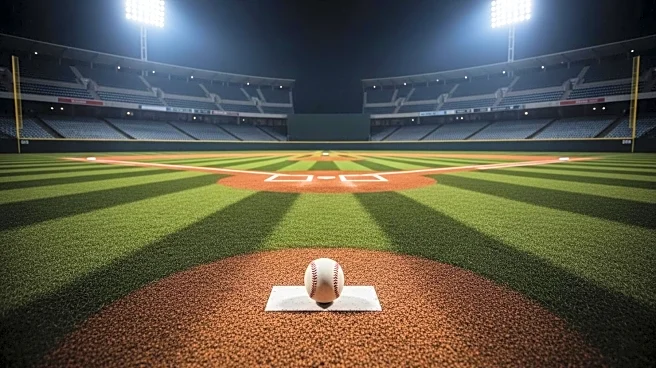What is the story about?
What's Happening?
Major League Baseball (MLB) has introduced a new policy, the Amateur Recovery Period Policy, aimed at reducing the risk of injuries among amateur players. This policy, detailed in a memo obtained by ESPN, prohibits team officials from observing or collecting data on amateur players during specific months over the winter. The policy applies to high school juniors and seniors from October 15 to January 15, and college players from November 15 to January 15. The initiative is designed to alleviate the pressure on young athletes to engage in high-intensity activities year-round, which has been linked to an increase in injuries, particularly to the elbow and shoulder. The policy forbids team employees from attending games, showcases, or training sessions, and from acquiring video or data on players during this period. Violations could result in fines, suspensions, or other penalties for both individuals and teams.
Why It's Important?
This policy is significant as it addresses a growing concern about the health and well-being of young athletes aspiring to enter professional baseball. By mandating a rest period, MLB aims to curb the trend of overuse injuries, which have become prevalent due to the year-round training and competitive events. The policy reflects a broader understanding of the long-term health risks associated with continuous high-effort activities. It also highlights MLB's commitment to player safety and sustainable career development. The policy could influence how amateur baseball is structured, potentially leading to a shift in how young players train and compete, with a greater emphasis on rest and recovery.
What's Next?
The policy is set to take effect next month, following the conclusion of a major high school event. While players are not barred from participating in winter events, the absence of team scouts and officials could impact the dynamics of these showcases. MLB's decision may prompt other sports organizations to consider similar measures to protect young athletes. The policy's effectiveness will likely be monitored closely, and its impact on injury rates and player development will be evaluated in the coming years. Stakeholders, including scouting directors and medical experts, have expressed support for the initiative, suggesting a potential shift in the amateur baseball landscape.














